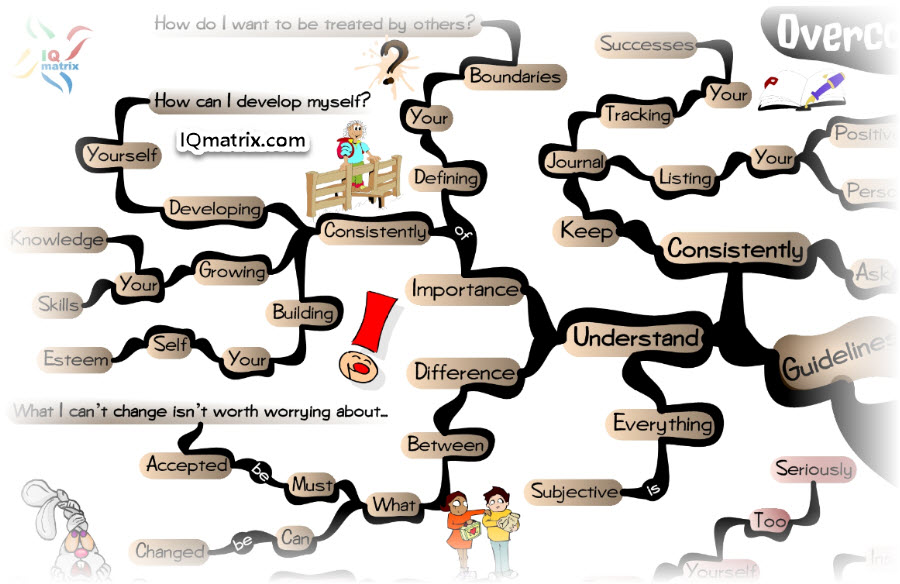Insecurity can be a major issue for many people. We all have insecurities, whether we acknowledge them or not. In this blog post, we will discuss types of insecurity and what causes them. We’ll talk about the effects of insecurity on work-life and relationships as well as how to deal with your insecurities.
Contents
- 1 What Is Insecurity (Insecurities)?
- 2 Types Of Insecurity
- 3 Degrees Of Insecurity
- 4 Causes Of Insecurity
- 5 Role Of Social Media In Spreading Insecurities
- 6 Effects Of Insecurities
- 7 Insecurities As a Defense Mechanism
- 8 Turning Your Insecurities Into Inspiration
- 9 Growing Acceptance And Embracing Yourself
- 10 Unveiling Our Insecurities
- 11 Talking To A Professional
- 12 Conclusion
What Is Insecurity (Insecurities)?
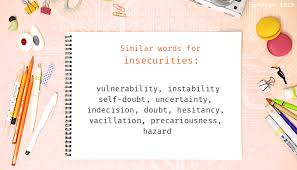
Insecurity is a lack of self-confidence. It can be related to your body image, work-life, relationships, and many other factors. Insecurities are often brought on by traumatic events or difficult experiences in our lives but they can also happen due to social comparisons.
Types Of Insecurity
There are many types of insecurity, which can include:
Body Image Issues
Thinking that one’s body is physically unattractive. This includes the fear of gaining weight or not being attractive enough to find a partner (in some cases). Most people who have this type of insecurity tend to be overly preoccupied with their appearance and lack self-love.
Relationship Insecurity
When one fears being alone or not having a partner in the future. This can be very common among people who have had bad experiences with dating and relationships, but it is also related to self-esteem problems. Some relationship insecure people tend to seek out dates even when they know that certain partners are wrong for them.
Work Insecurity
This type of insecurity is common among people who are afraid of being laid off or fired from their job. They may feel like they are not good enough for the job or that they will be replaced at any moment. This can lead to a lot of stress and anxiety.
Social Comparison Insecurity
This insecurity is based on the fear of being judged by others. People who have this type of insecurity often compare themselves to others and feel like they come up short. This can lead to a lot of unhappiness and low self-esteem.
Intellectual Insecurity
This insecurity is based on the fear of not being smart or clever enough. People with this type of insecurity often doubt their intelligence and feel like they are not good at anything.
Degrees Of Insecurity
Insecurity can be a full-blown disorder or it may just be something that we all experience from time to time. Insecurities usually become more severe as one struggles with them over an extended period and they do not seek out help for their problem.
Causes Of Insecurity
There are many different causes of insecurity, which can include:
Traumatic Life Events
Experiencing traumatic life events can lead to insecurity. These can include losing a loved one, going through a divorce, or witnessing violence in the streets (i.e., seeing someone get robbed). All of these experiences make us question our safety and how long we will live for. They also force us to re-evaluate what is important to us in life.
Poor Self-Esteem And Self-Image
People who have poor self-esteem and do not love themselves often seek validation. When they go out into the world, they are constantly seeking compliments from others to feel good about themselves. This leads them to compare themselves to other people in an unhealthy way. They may also be afraid of being judged by others when they are in social situations.
Fear Of Rejection
People who fear rejection often do not take risks because they are afraid of being rejected. This can include asking someone out on a date, applying for a job, or starting a new business. They may also be fearful of what people will think of them if they do something wrong.
Negative Life Experiences
Negative experiences that we go through can cause us to become insecure. This includes bullying at school, struggling with a mental health disorder, or dealing with addiction problems. These events make us believe that the world is not safe and people are out to get us. They also force us to re-evaluate what is important in life, which can cause us to become more focused on our own needs.
Negative Self-Talk
Many people have negative thoughts that go through their heads over and over again, repeating the same story about themselves day after day. This is called “self-talk.” Insecure people tend to be very hard on themselves because of this self-talk. They may believe that they are not good enough or that they will never be successful.
Fear Of Abandonment
People who fear abandonment often do not trust others because they believe that people will eventually leave them. This fear often comes from childhood experiences when a caregiver or family member did not stick around.
Dysfunctional Families
People who come from dysfunctional families are more likely to be insecure in adulthood. This is because they may have never learned how to trust and rely on others, which can lead to a lot of trust issues in relationships.
Bullying
People who are bullied often develop insecurity as a way to cope with the abuse. They may feel like they are not good enough or that there is something wrong with them. This can lead to low self-esteem and social anxiety.
Comparison To Others
Insecure people often compare themselves to other people in an unhealthy way. They may also be afraid of being judged by others when they are in social situations.
Role Of Social Media In Spreading Insecurities

Social media can be a great tool for staying connected with friends and family, but it can also be a breeding ground for insecurities. When we are constantly exposed to the highlight reels of other people’s lives, it is easy to start feeling inferior!
In some cases, social media can make us feel insecure about our own lives. For example, we might feel insecure about our lack of a social media presence or the number of likes that we get on each post!
In other cases, it can make us feel bad because none of our posts are getting any attention. For example, if all your friends seem to be posting popular memes and you have nothing valuable to add to these conversations, then you might start to feel left out!
In either case, it is important to remember that social media is not a representation of real-life! Just because someone has a lot of followers or they are always posting about their amazing life, doesn’t mean that they are any happier than you are!
Effects Of Insecurities
Effects Of Insecurity On Social Life
Insecurity can harm your social life. Insecure people may not be able to form healthy relationships or hold down jobs due to their insecurities. Some people become so consumed by their feelings of inadequacy that they stop trying new things and stay at home most of the time, which makes it harder for them to make friends.
NOTE: People who suffer from insecurities may be afraid to take risks because they are worried about what others will think of them or how people will respond if they fail at something.
Effects Of Insecurity On Work Life
If left untreated, insecurity can prevent you from succeeding in the workplace. Insecure people often feel like they do not deserve to be successful or that luck is what got them their job in the first place. This leads them to avoid opportunities at work and put off promotions. They may also be less productive due to the stress and anxiety that comes along with insecurity.
Effects Of Insecurity On Relationships
Insecurity can harm relationships as well. Insecure people often fear abandonment and they tend to be very needy. This can lead to arguments and fights with partners, as well as a lot of drama. Insecure people also often have trust issues, which can make it difficult to form lasting relationships.
How Insecurities Can Be A Big Turn Off
Insecurity can be a big turn-off for potential partners. Insecure people tend to be very needy and often have low self-esteem. They may also be preoccupied with their appearance, which can make them seem superficial. In addition, insecure people often complain about their life and/or have a negative attitude.
Effects Of Insecurities On Mental Health
Insecurity can be a symptom of mental health disorders, such as depression and anxiety. People who suffer from insecurities often have poor self-esteem and low confidence. They may also feel depressed or anxious because they do not trust others and/or believe that people will eventually leave them.
Effects Of Insecurities On Physical Health
Insecurity can also harm physical health. Insecure people often experience a lot of stress and anxiety. It can lead to health problems such as headaches, stomachaches, and even heart disease.
Insecurities As a Defense Mechanism

Insecurities can also be a defense mechanism. For example, if we feel like we are being ignored by our partners, we may start to feel insecure and become needier. This can be harmful because it can push the other person away and make them less likely to want to spend time with us.
Insecurities can also be a defense mechanism against getting hurt. For example, if we have been hurt in the past by someone we care about, we may start to feel insecure around them and become less trusting. In this case, our insecurity is protecting us from getting hurt again.
While insecurities can sometimes be helpful, they can also be harmful. It is important to monitor how we feel and identify when our insecurities are becoming harmful. If you cannot overcome your insecurities, be sure to talk to a therapist who can help you work through them and become more confident in yourself!
Turning Your Insecurities Into Inspiration

Insecurities can sometimes be a blessing as well as a curse. When we feel insecure, it is easy to focus on our flaws and let them dominate our lives! However, if you are feeling inspired by your insecurities, then they may appear more like blessings than curses.
If you have been spending too much time focusing on how your insecurities are affecting your life, then it is time for you to take a step back and reflect on them. It might be possible that they are making you stronger!
If people have been mistreating you because of your insecurities, then this can lead to feelings of resentment towards these individuals. However, even though they may have caused your insecurity in the first place, it is important not to let them get the best of you!
In some cases, we may be insecure because of something that we have control over. For example, if you are overweight and feel insecure about your body, then you can do something about it! Start by making small changes to your diet and exercise routine and you will start to see results over time.
In other cases, our insecurities may be out of our control. For example, we might feel insecure about our age or the way we look! However, in these cases, we can learn to accept ourselves for who we are.
Growing Acceptance And Embracing Yourself
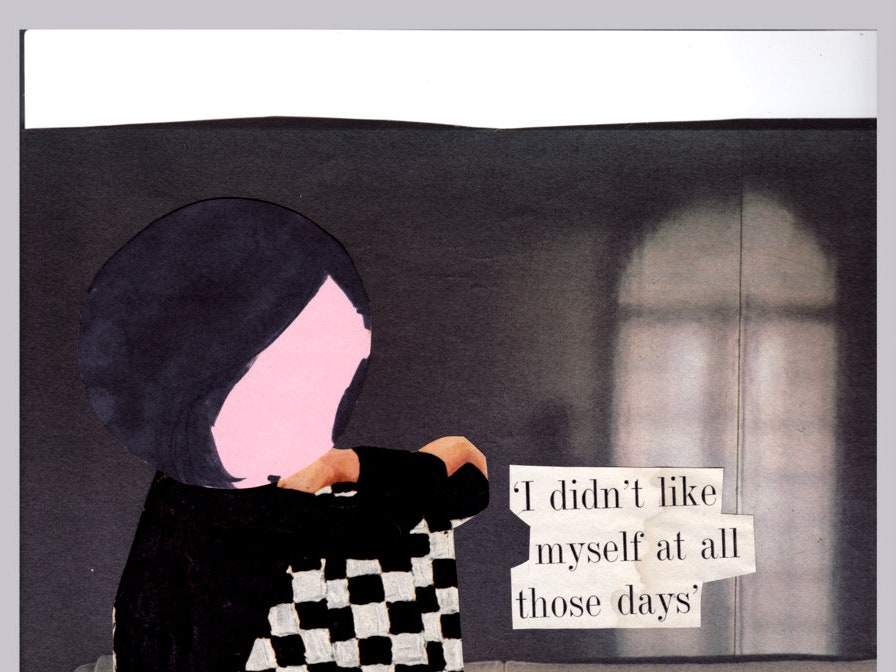
Tips For Dealing With Insecurities
Do not compare yourself
Do not compare yourself to others because it will never lead you anywhere good. Just be true to who you are and do the best that you can! If people like your personality, then they will stay around; if they don’t, then they were never worth your time in the first place.
Talk to someone about your insecurities
It can be very helpful to talk to a friend or therapist about what you’re struggling with. This will help you gain some insight and start working through your issues.
Challenge your negative thoughts
When you start to feel insecure, challenge the thoughts that are causing those feelings. Are they true? Or are you just overthinking things?
Focus on your positive qualities
Everyone has good and bad qualities, so try to focus on the good ones! When you think about yourself, what are some of the things that you like best? Write them down and refer to them when you’re feeling down about yourself.
Do something that makes you feel good
When you do something that makes you happy, it can help boost your self-esteem. So go out and enjoy life! Dance, sing, read a book – just do whatever puts a smile on your face.
Accept compliments
When someone compliments you, accept it! It is easy to brush off compliments or question them. But we should always be gracious and thank the person for their kind words.
Be thankful for your life circumstances
If there’s something that makes you insecure about yourself, remember that many others in the world have much tougher lives than yours. You should be grateful for your life and what you have!
Do not give up
Just because someone does not like you, doesn’t mean that nobody will. Keep trying and don’t let other people stand in the way of who you are meant to be with! There is a perfect person out there for everyone; it just takes some time to find them.
How To Deal With Insecurity In Relationships
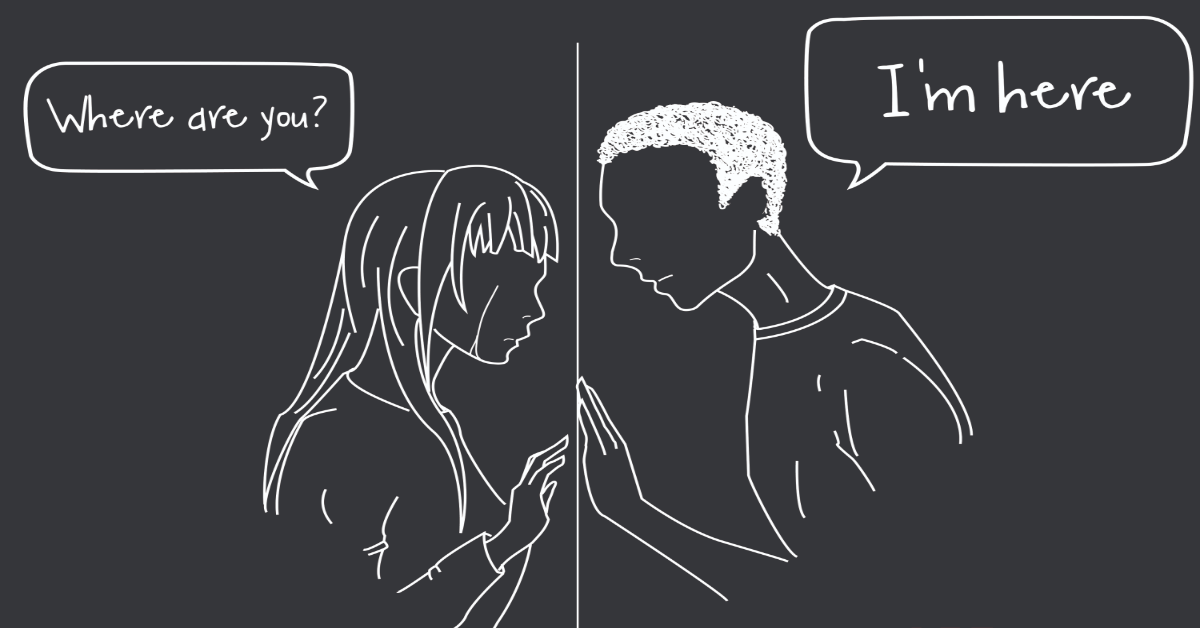
When we are in a relationship, it can be easy to blame our insecurities on the other person. For example, you might feel insecure because your partner seems distracted by their phone or is spending too much time at work! However, this does not mean that they do not love you anymore; instead, this may simply be an indication that your relationship is not meeting all of their needs!
If you are feeling insecure in your relationship, it is important to talk to your partner about it. For example, you might want to ask them why they seem distant or what they need from you to feel more secure. In some cases, your partner may be unaware that they are making you feel insecure!
If you and your partner can talk openly about your insecurities, then it is likely that your relationship will become stronger as a result. However, if you find that you are not able to talk about them or they are unwilling to help you overcome them, then it might be time to end the relationship!
How To Deal With Insecurities In Workplace?
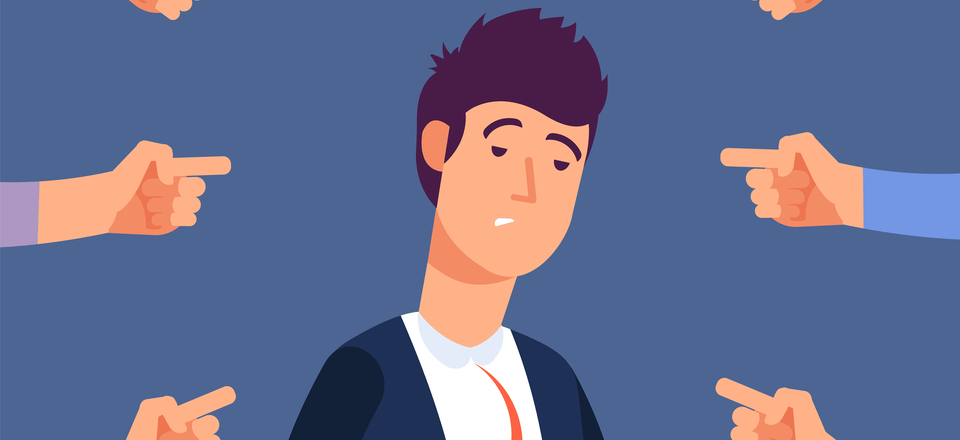
If you are feeling insecure at work, then it is likely that your insecurity may affect the way that you interact with others. For example, if you feel like your coworkers do not like you or they treat everyone else better than you, then this might start to affect how productive and happy you are at work!
In some cases, these feelings of insecurities might lead you to lash out at others. For example, if a coworker says something that seems dismissive or rude towards you, then it is natural for your first reaction to be angry! However, this can make the situation even worse and prevent effective communication from taking place.
In other cases, these feelings of insecurities might cause you to withdraw from everyone else. For example, if your coworker brings donuts and you feel insecure about your weight then it might be tempting just to sit at the back of the room and eat them all by yourself!
In either case, these feelings can lead to a vicious cycle that will only make things worse over time. However, there are a few things that you can do to try and break the cycle!
- Talk to your supervisor about how you are feeling. They may be able to provide some insight or suggestions on how to deal with the situation.
- Try to identify why you are feeling insecure at work. Once you have a better understanding of what is making you feel this way, then it will be easier to find a solution.
- Join a support group or therapy sessions with people who are experiencing similar feelings of insecurities! This may help you realize that you aren’t alone and some tools can prove your situation!
Resources For Dealing With Insecurities
There are several ways to deal with insecurity: therapy, self-help books, and self-improvement courses.
Therapies For Dealing With Insecurity
If you are struggling with insecurity, it is important to seek professional help. A therapist can help you understand the root of your insecurities and give you the tools to deal with them.
Cognitive Behavioral Therapy (CBT)
This type of therapy is all about changing the way you think and behave. It can help deal with negative thoughts and feelings.
Exposure Therapy
This type of therapy is all about facing your fears. It can help me learn how to deal with anxiety and insecurity, especially when it comes to certain relationships or situations.
Self-Help Books On Insecurities
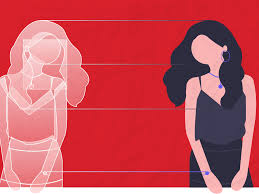
Books and movies can also be great sources of inspiration to help us overcome our insecurities. Because we feel like we are not alone! If you do not have access to or the means to see a therapist. Then it may be helpful for you to read books about overcoming your insecurities as well as watch movies with characters that struggle with the same issues.
There are several self-help books on insecurity that can help you deal with your insecurities. These books often offer advice and exercises to help you build confidence and learn how to trust others.
“The Imposter Syndrome, Overcoming Self-Doubt and Creating a Life of Success” by Dr. Valerie Young
This book is all about conquering your self-doubt and achieving success. It offers helpful tips for dealing with insecurity and building self-confidence.
“Feel the Fear and Do It Anyway” by Susan Jeffers
This book is all about overcoming fear and anxiety. It offers advice on how to deal with difficult emotions and take risks.
“The Assertiveness Workbook” by Randy J. Paterson
This workbook offers exercises and techniques for becoming more assertive in your life. It can be helpful for people who struggle with insecurity and feel shy or passive.
“The Confidence Gap: The Key to a Better Life? by Russ Harris, LPC, and Steven D. Fisher
This book is all about building confidence in your life. It offers tips for dealing with insecurity and boosting self-esteem.
Movies On Insecurities

“The Blind Side” (2009)
This drama tells the story of Michael Oher, an underprivileged black teenager who is taken in by a wealthy white family. It explores the theme of insecurity and how it can lead to success.
“Black Swan” (2010)
This psychological thriller is all about paranoia, competition, and self-doubt. It is an excellent movie for exploring the effects of insecurity on mental health.
“The Help” (2011)
This movie is all about female friendships, the cruelty of white women towards their black maids, and overcoming one’s fears. It is a great movie to watch if you are struggling with insecurity.
“Shakespeare in Love” (1998)
This romantic comedy is all about love, creativity, and overcoming obstacles. It is a great movie for exploring the topic of insecurity in relationships.
“The Iron Lady” (2011)
This biopic is all about former British Prime Minister Margaret Thatcher and her rise to power while facing many obstacles along the way. It shows how one can overcome insecurities through hard work, determination, and perseverance.
“Inside Out” (2015)
This animated adventure is all about exploring the inner workings of a young girl’s mind. It shows how one can overcome insecurity and anxiety by listening to your gut feelings.
Self-Improvement Courses On Insecurity
There are also many self-improvement courses available for people who struggle with insecurity. These courses often offer practical advice on how to deal with insecurity in your daily life. They encourage you to work on many areas of your life to overcome your insecurities. Here are a few examples:

- Building self-confidence
- Improving communication skills
- Becoming more assertive
- Developing healthy relationships
- Making time for yourself
- Taking care of your physical health
- Managing your time more effectively
Unveiling Our Insecurities
Should We Talk Openly About Insecurities?
There is a lot of debate about whether or not we should talk openly about our insecurities. Some people believe that it is helpful to share them with others, while others think that it can do more harm than good.
When discussing our insecurities, we should be mindful of the fact that not everyone will understand what we are going through. It can be helpful to find a friend or therapist who we feel comfortable talking to about our insecurities and who will not judge us for them.
NOTE: On the one hand, people should not be ashamed of their feelings and emotions. On the other hand, it is important to pick your battles because you can easily end up wasting a lot of time dwelling on things that do not matter.
When We Should Unveil Our Insecurities?

There is no right or wrong time to unveil our insecurities. Some people feel more comfortable discussing them with a therapist, while others may choose to tell their partner about them. It is important to do what feels best for you and to be selective about who you share your insecurities with.
In some cases, it is healthy to reveal our insecurities to others. For example, if we are feeling insecure about something and need feedback from a friend or partner, then it can be helpful to share what we are going through with them. On the other hand, you should never reveal your insecurities online because it can be harmful.
Talking To A Professional
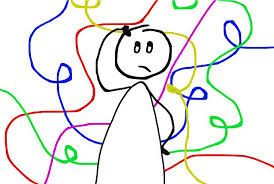
Insecurities can be both a blessing and a curse. When we are insecure, it is easy to feel like the world is ending because of our insecurities! In some cases, your insecurity may stem from an external factor such as someone mistreating you or belittling you.
But there are other times when your feelings of inadequacy may be coming from within. In either case, it can be helpful to talk to a professional about your insecurities. A therapist will help you explore the root of your insecurity and give you the tools to deal with them.
Some books and movies focus on insecurity and offer advice for overcoming them. If you feel like you need to talk to someone about your problems, then you must find the right person. When searching for a therapist, be sure to do your research and read reviews!
How Does Therapy Help You Overcome Your Insecurities?
A professional will not just tell you to get over your insecurities. Instead, they will help you explore why you are feeling insecure and give you the tools that you need to overcome them.
Therapists can also be a safe place for us to express our feelings of insecurity because it is easier for them to provide feedback when we do not know them personally.
Conclusion
Insecurities are a part of who we are and it is impossible to get rid of them altogether. However, we can work on managing our insecurities so that they do not control our lives. In some cases, it may be helpful to talk to a therapist about our insecurities. They can provide us with the tools we need to overcome our insecurities and become more confident in ourselves!
If you are feeling insecure, be sure to do what feels best for you and to be selective about who you share your insecurities with. In some cases, it is healthy to reveal our insecurities to others. For example, you might want to talk with a friend about your insecurities and how they affect you. However, it can be harmful to reveal our insecurities on social media or over text because anyone can read them!
In either case, we should never feel ashamed of our feelings of insecurity as long as we are doing what is best for us and we are taking steps to overcome them!
If you are looking for affordable Online Counseling MantraCare can help: Book a trial therapy session
